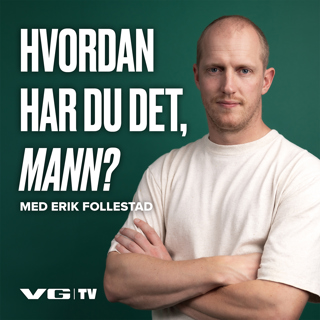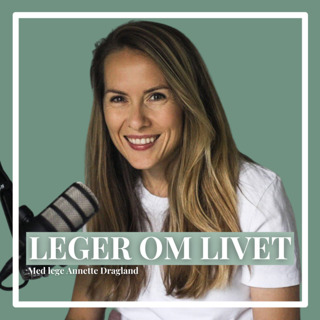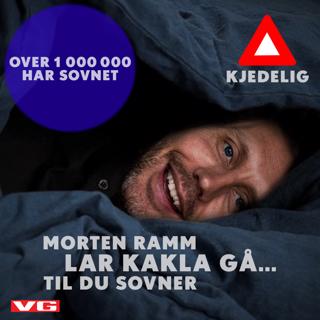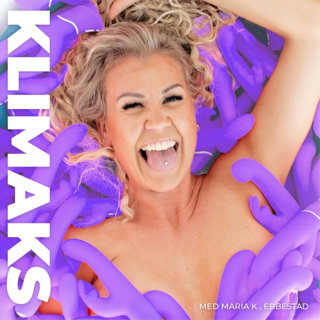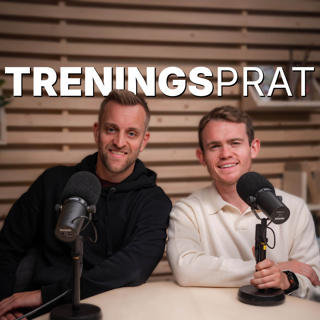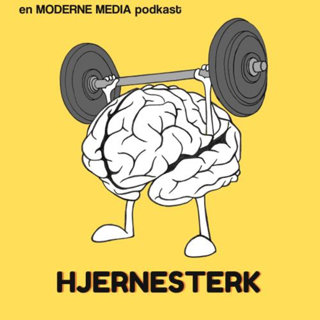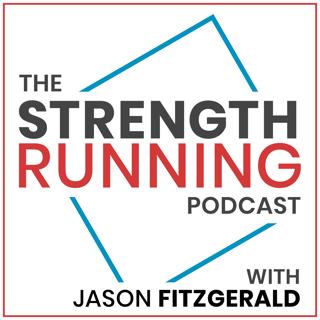
Episode 52: Maggie Callahan on The Benefits of Strength Training
I had the pleasure of getting to know Maggie last fall when she modeled the exercises for our new strength training program. We spent a few hours at a weight lifting gym called Barbell Strategy in Boulder, CO. Maggie and Addie Bracy (2x Mountain Runner of the Year) demonstrated 40+ exercises and we had a videographer to capture all of the magic. During her time at the University of Arizona, she won the PAC-10 Steeplechase Championship (she'll also tell you that she's twice won her beer in weight!). Her PR for the steeple - one of my absolute favorites - is 10:03 or the equivalent of about 10:45-10:50 for 2-miles (with 30-inch barriers and water jumps). It's quite impressive. Now, Maggie trains under elite coach Brad Hudson. Brad, as I'm sure you know at this point, is the author of my favorite book on running - Run Faster: How to be Your Own Best Coach From the 5k to the Marathon. If you don't own this book, go buy it. You won't regret it. Back to Maggie: just last month she got on the podium at the Arizona RnR Hlaf Marathon, running 1:17:20 for third place. And I'm thrilled she's on the podcast to talk about her running and the benefits of strength training she has personally experienced.
26 Feb 201838min

Episode 51: Dimity McDowell: The Cofounder of Another Mother Runner
Dimity is the cofounder of Another Mother Runner - one of the largest communities you'll find for women runners. Besides the blog, the AMR ecosystem includes a helluva lot: The Another Mother Runner podcast AMR retreats Run Like a Mother Train Like a Mother Tales From Yet Another Mother Runner The AMR store I'm publishing this episode as an excerpt from Team Strength Running (if you're not sure what that is, sign up here and I'll give you all the details next week). Dimity is on the Strength Running podcast today to talk about the many issues that are more unique to women. As you can imagine, I'm not the best person to address this topic. As a man, there are a lot of things I'm simply not aware of or privy to in the sport of running. It's not just women's issues; I bring in outside experts on everything that's outside of my wheelhouse: Running through pregnancy Sports psychology and "mental training" The physiology of lifting weights And I'm thrilled to introduce you to Another Mother Runner and the great work they're doing for the running community.
15 Feb 201840min

Episode 50: Running 101: How I think about training runners to race faster
Two years ago, I was interviewed for an event called The Running Summit. I spoke about wide-ranging topics: How I started running My injury prevention philosophy The biggest areas of improvement for runners Strength training do's and don'ts Warm-ups and cross-training My favorite aspects of coaching How running "scales" My favorite running authors The two principles of sound form you must remember Who benefits from getting a coach? How to build your mileage more safely than the 10% rule Why 'Run Less, Run Faster' fails as a training methodology and a lot more! As you can see, we went DEEP on running and touched on nearly every important element of sound training. This is an audio recording of our interview where you'll be able to glean insights from my experience as a runner, coach, and a coached athlete.
6 Feb 201857min

Episode 49: Pro Triathlete Jesse Thomas on Fueling for Ironman Triathlons
You might recognize Jesse as the dude who races in Aviators (there's never an inappropriate time for Aviators). He was an All-American and school record holder at track and field powerhouse Stanford University. After graduating with a Masters in Mechanical Engineering, Jesse started a company and got an MBA before going pro in triathlon in 2011. You might say that Jesse likes to stay busy. Today, he's the CEO of Picky Bars - a company he cofounded with his wife Lauren Fleshman - and an elite triathlete who's a 2x Ironman Champion. After reading a fascinating article in Triathlete Magazine last year, I reached out to Jesse to learn more about his nutrition philosophy and approach to fueling for such a grueling sport. As the CEO and cofounder of a company that helps athletes fuel their workouts, a pro triathlete, and a highly educated guy, Jesse has interesting perspectives about the nuances of eating 6,00 calories per day. Does he follow any type of formal "diet?" How does his nutrition change throughout the season and year? Is he a calorie counter, scorer, or macronutrient calculator? How "perfect" does he try to be with his nutrition? Jesse joined me on the Strength Running podcast to talk about these issues and a lot more. I hope you'll listen.
31 Jan 201857min

Episode 48: Strength Coach Randy Hauer on The Role of Lifting for Runners
I've fielded hundreds of lifting questions from runners who all want to know, "How do I lift the right way?" It's a great question. In fact, it's THE question! Knowing how to lift properly will: Save you a lot of wasted time Give you the actual results you want Reduce your injury risk But without knowing WHY runners should lift then it's impossible to answer HOW runners should lift. Do runners need to build strength? Or power? Or neuromuscular coordination? When is the right time to work on each skill? Also: Can kettlebell work be added into a lifting program for runners? If so, how? Are CrossFit or other HIIT sessions appropriate? If so, when? Should trail runners lift the same way as road runners? Clearly, this is a complex topic! Thankfully, we're featuring a top strength coach on the podcast to answer all of your questions about lifting for runners. You'll recognize Randy Hauer as the strength coach behind the programming of High Performance Lifting - our step-by-step lifting program for runners. Randy has over 30 years of strength and conditioning experience in a wide variety of disciplines and training styles: Olympic Weightlifting Sports performance coaching Personal training CrossFit Kettlebell training He uses insights from these experiences to develop world-class programming for pro runners in Boulder, Colorado. He works directly with some of Brad Hudson's Hudson Elite team members. In High Performance Lifting, Randy brings runners through a comprehensive 16-week strength program that periodizes strength training so runners will get strong, powerful, and (most importantly) faster. And today he's answering the most common questions we've received over the last few weeks: HIIT / CrossFit training for runners When you should lift (Before or after running? Off days? Hard days?) Soreness from lifting weights Trail runners and lifting Mobility and movement fluency Is HPL just for "fast" runners? Is it right for older runners 50+? What about high school aged kids?
24 Jan 20181h 2min

Episode 47: Ideal Strength Training for Runners
Cross-training is supplemental exercise that can be helpful to your running, like cycling. But just like form drills, strides, or dynamic flexibility exercises, I consider strength training to be an integral part of how to train distance runners. If you're not strength training, then you're not training. Running by itself only gets you so far. It's a fairly one-dimensional form of exercise, after all. If you look at how pro runners train (hell, even high school runners), you'll see a lot of "other things" in their training: Form drills Plyometrics Bodyweight strength workouts Mobility Barefoot work Skill-based strength exercises (like Olympic lifts) Dynamic flexibility routines Whoever said runners just ran?! All of this extra training makes you stronger, more efficient, and flexible with higher levels of coordination. In other words, you become a better athlete. Because you're not a runner – you're an athlete that specializes in running. I wanted to dive into the topic of strength training in more detail so you know what to do – and how to do it – to become a faster and less injury-prone runner.
19 Des 201717min

Episode 46: Strength Running's Favorite Holiday Gifts
I'm doing something a little different today in that I'd like to share with you what I think are the best gift ideas for runners this year. Now as a running coach, my focus is on improvement so I'm only going to recommend things that are going to help you improve. That's why I won't be suggesting sweatshirts, socks, shoes, or anything like that. Those are "nice to haves" but what's in this episode are gifts that will help you get to the next level. I also want to be completely transparent on three things: #1 - If you follow any of the links that I mention or use the discount codes, then Strength Running is going to get a small kickback. It won't cost you anything extra but it does help support the podcast so I can keep churning out episodes. Ok #2. I'm only promoting products where I can give you a discount. The holidays can be a financially challenging time so I'm trying to hook you up with discounted and helpful running products. FInally #3, I own, trust completely, or use myself all of these products and services. I will never promote something that I don't believe in because life is too short not to be able to sleep at night. Enjoy this episode and have a great holiday season!
7 Des 201717min

Episode 45: Marathon Training at the Elite Level, with Pro Nick Arciniaga
I invited Nick to share as much detail as possible about his marathon training, race strategy, and post-race recovery so you can understand how an elite marathoner tackles the race. Just recent he posted on Instagram: To run your best, you have to put in the work, know your body, and keep reminding yourself that you can do it. Train both your mind and body. And today, you'll hear what "the work" means to a professional marathoner. You'll learn: How many weeks Nick prepares for the marathon Why his marathon training includes no cross-training How he structures his taper and recovery after the race His preferred marathon fuel The types of long runs necessary to race 26.2 miles This episode goes deep into marathon training - the nuts and bolts and nitty gritty details of how an elite marathoner trains and races 26.2 miles. Note that our conversation is just an excerpt from the full interview available to Team Strength Running members. I encourage you to learn more about the team here (we're opening soon!).
4 Des 201745min


